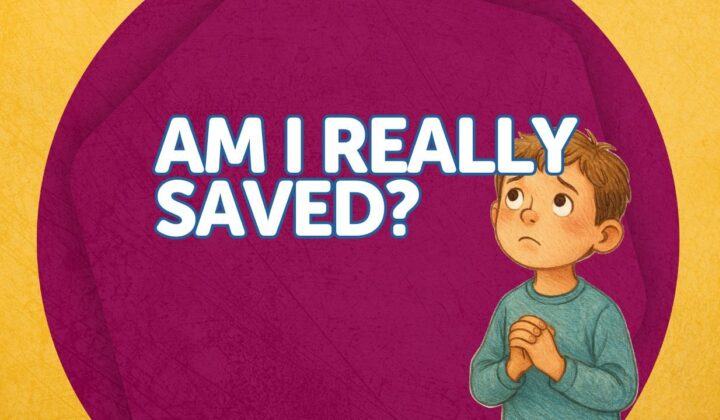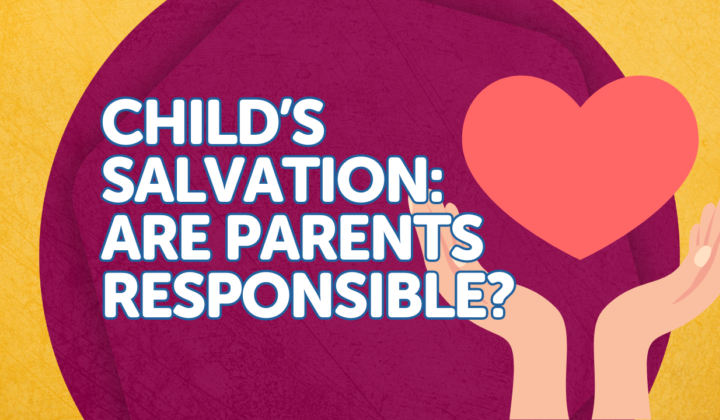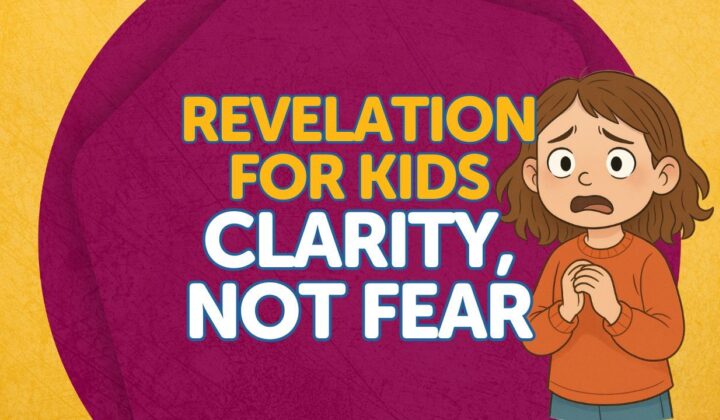Learn more about the journey that led to us equipping kids to carefully evaluate every idea they encounter.
Meet members of our team who have contributed to curriculum development.
Hear from real users of the Foundation Curriculum.
Learn what we believe about God, Jesus, Scripture, and more.
Lilo & Stitch: A Biblical Worldview Movie Review for Families
Hello friends! On today's podcast, we're going to be looking at three biblically grounded conversations you can have with your kids after taking them to see the movie Lilo and Stitch.
Now, as I've said on previous podcasts, I probably won't ever encourage you to take your children to see a movie because that kind of decision is a matter of conscience. However, if you do choose to take your kids to see Lilo and Stitch, I'm going to offer some biblical worldview conversations that you can have with them.
So that's what we're going to dive down deep into today on the Foundation Worldview Podcast, where we seek to answer your questions so that you can equip the children that God has placed in your care to carefully evaluate every idea they encounter and understand the truth of the biblical worldview. I'm your host, Elizabeth Urbanowicz, and I'm thrilled that you've joined me for this episode today.
General Movie Overview
Just as a general overview of the movie, when I went to see this film, I thought that it was very well done for kids. A couple of things stood out to me:
Appropriate Length: I thought it was an appropriate length for children. When I went to see it, there were many kids in the theater and pretty much all of them were able to sit and watch it and pay attention for the entire length of the film.
Age-Appropriate Action: I also thought that Disney did a great job of making the action appropriate to fit within a PG rating. There have been times before where I've gone to see movies that were rated PG and I thought, "Wow, the action in this movie is really intense," thinking that there are going to be probably a number of children who see it. I thought that Disney did a really good job of making the action appropriate for the PG rating.
Excellent Acting: I thought that the girl who played Lilo did an excellent job in acting. I was trying to think on my way back from the film—I was driving and I was thinking, "Wow, when is the last time that I saw a child actor do that amazing of a job in a film?" So I thought she did an excellent job and she also really helped draw the viewer into the movie just in portraying this kid that you just really like and you want to see succeed.
Things for Christian Parents to Be Aware Of
Just a few things for Christian parents to be aware of before taking your kids to go see the movie:
Language: One of the characters in the movie does use the word "hell"—uses it in the phrase saying "what the..." and then says the word "hell."
Inappropriate Comment: Lilo at one point in the movie tells David (who is the character who is interested in her older sister Nani) that Nani likes his butt, which isn't wildly inappropriate, but just really wasn't necessary for a kid's film.
Male Portrayal: It's also important to be aware of the fact that almost every man or teenage boy in this film is portrayed as an idiot. Now, this is typical of media in the West—basically since the 1980s, most TV shows and movies have portrayed men as idiots.
Now, I don't think that this in and of itself is a reason for all families not to take their kids to see the movie. However, I think we do need to be careful. When we're thinking of all of the media that we are allowing our kids to engage in, we need to be careful not to immerse our kids in this messaging too often because we don't want our boys or our girls to grow up thinking that men are idiots. Men are created in the image of God and within the home and the church, they have been given unique roles of leadership. So we want to be careful not to immerse our kids in this messaging too often.
Three Important Biblical Conversations
Now, I think there are three really important conversations to have with our kids if you choose to take your kids to see the movie.
Conversation #1: The State of Humans
The first conversation is regarding the state of humans. I think it would be great to open up a conversation by asking: "Are humans bad, or do we just do bad things?"
This question would be appropriate after seeing the movie because in the beginning of the movie, Nani tells Lilo after she makes mistakes and other kids are mad at her, "Lilo, you're not bad. Sometimes you just do bad things." And then later on towards the end of the movie, when Stitch realizes that he's caused so much trouble in Lilo's family, Lilo says the same thing. She says, "You're not bad, Stitch. Sometimes you just do bad things."
So we can then ask our kids, "Okay, according to the Bible, is this true? Are we not bad, but we just do bad things sometimes?"
There are three key passages of Scripture we can take our kids to talk through this:
Genesis 1:27 - "So God created man in his own image, in the image of God he created him; male and female he created them."
We can ask our kids: "What truth does this passage reveal about humans?" It reveals the fact that all humans bear God's image, which means that all humans are inherently valuable. So this is the baseline—all humans bear God's image and are inherently valuable.
Romans 3:10-12 - "None is righteous, no, not one; no one understands; no one seeks for God. All have turned aside; together they have become worthless; no one does good, not even one."
We can ask our kids: "What truth does this passage reveal about humans?" This reveals that none is righteous. There's no one who is righteous. There's no one who seeks God. There's no one who does good, not even one. This means that all humans are sinful, and because of this sinful nature, morally we are bad. We have turned from God to our own way.
2 Corinthians 5:21 - "For our sake he made him to be sin who knew no sin, so that in him we might become the righteousness of God."
We can ask our kids: "What truth does this verse reveal about humans?" It reveals that he who knew no sin—Jesus—became sin so that we could become the righteousness of God, that Jesus took on our sin so that we could be redeemed and clothed in his righteousness.
The Biblical Answer: As we're thinking through this question—"Are humans bad or do we just do bad things?"—what Scripture reveals is that we as humans bear God's image and are inherently valuable, yet we don't just do bad things sometimes. We are sinful. That means that yes, we are bad. However, this isn't the end of the story. God loved us so much that he sent Jesus to take our punishment so that we might be reconciled to him and clothed in his righteousness.
Since this phrase—"You are not bad, you just do bad things sometimes"—is repeated several times throughout the movie, I think this is a really important and powerful conversation we can have with our children to help them understand that the biblical view is that we have inherent value because we're made in God's image, but we are bad. We are sinful because we have inherited the sin of Adam. Yet that's not the end of the story. Because of God's grace through Jesus, we can be redeemed.
Conversation #2: The Importance of Family
The second conversation that we can have with our kids is asking them the question: "Is family important even when it isn't perfect?"
The reason that I think this is a good conversation to have with our kids is because several times throughout the movie, Lilo says that "Ohana means family, and family means nobody gets left behind." And then towards the end of the movie, Lilo says to Stitch, "Ohana means family. And sometimes family isn't perfect, but that doesn't mean it isn't good."
So we can have this conversation about family with our children. We can ask them: "Even when we sin against one another, even when we don't behave as we should, is family still a good gift?"
Starting the Conversation: You can open this conversation by discussing the ways that sometimes you sin against one another. You can talk about how sometimes you're impatient with one another. Sometimes you get into disagreements or arguments over things. Sometimes you struggle to be kind with one another. Sometimes you might have a bad attitude with one another.
And then discuss the blessings that come along with being part of your family. Talk about how you love one another, how you care for one another, how you sacrifice for one another. Talk about fun family memories that you've created. Talk about times when you have served the community or your family or your church family together. So talk about these blessings that are part of being part of your family.
Two Key Scripture Passages:
Ephesians 6:1-4 - "Children, obey your parents in the Lord, for this is right. 'Honor your father and mother'—this is the first commandment with a promise—'that it may go well with you and that you may live long in the land.' Fathers, do not provoke your children to anger, but bring them up in the discipline and instruction of the Lord."
Ask your children what truths are revealed in this passage. The truths revealed are that children are to obey their parents, and parents are to bring their children up in the discipline and instruction of the Lord. You can talk about how God designed families. God brought Adam and Eve together in the garden. God is the one that designed marriages to lead to children. And because God is the one who designed families, families are inherently good. They're an inherently good gift. Yes, we're going to struggle with sin. Sin is going to impact our families and it's going to make it hard to be part of a family sometimes, but families are part of God's good design.
John 1:12 - "But to all who did receive him, who believed in his name, he gave the right to become children of God."
You can talk about how in Jesus, when we are reconciled to God, when he redeems us, we become part of God's family. We become children of God, and you can talk through how families point to the one eternal family, the family of God.
For those of you watching or listening who have taken your children through our God's Good Design Curriculum at Foundation Worldview, you remember that this is one of the truths that we cover in the third unit—that families point to the one eternal family. So if you've taken your kids through that curriculum, point back to that truth. You can even go through some of the games or activities that we went through in that lesson.
We want to help our kids see that families, even in this current sinful state, they are still inherently good because God designed the family and family is a good gift from him.
Conversation #3: What Does It Mean to Love Someone?
The third conversation that we can have with our kids after watching Lilo and Stitch is asking the question: "What does it mean to love someone?"
The reason that this is an important conversation to have after watching the movie is one of the main things that we see throughout the movie is Stitch actually begin to love Lilo. By the end of the movie it becomes plain and clear and obvious that Stitch loves Lilo.
So talk with your kids about this and say, "By the end of the movie, it was clear that Stitch loved Lilo. How could we tell that Stitch loved Lilo?"
How Stitch Demonstrated Love: Talk about how Stitch stopped thinking about what was best for him and started instead to think about what was best for Lilo. Stitch demonstrated his love for Lilo in several ways:
First, when he went back to the animal shelter. When he realized that he was bringing trouble to her family, he stopped thinking about using her to protect him, and he was willing to go back to that animal shelter where it was more dangerous for him to be discovered and taken back to go on trial on his planet. But he chose to give up that protection of Lilo because he saw that he was hurting her.
Second, we saw Stitch's love for Lilo when he went back in the spaceship to get the picture of Lilo's parents because he realized how important that picture was for her. It was dangerous for him to be there, but he cared more about what was good for Lilo than what was good for himself.
Finally, at the end of the movie, we see that Stitch was willing to sacrifice his very life for Lilo. Lilo at the end of the movie is trying to pull him up off the bottom of the ocean floor and she can't carry him. So Stitch purposely pries her fingers off of his hand so that she can rise to the surface to get air.
The Biblical Definition of Love:
After talking about this with our kids, a great passage to take them to in Scripture is John 15:12-13: "This is my commandment, that you love one another as I have loved you. Greater love has no one than this, that someone lay down his life for his friends."
Then ask: "What truth is revealed in this passage of Scripture?"
You can discuss how this passage reveals that the greatest act of love is someone being willing to lay down their very life for another person. Talk about how at the end of the movie, Stitch demonstrated this willingness to lay down his life for Lilo, and this made it obvious that he truly loved her.
Conclusion
As I mentioned at the beginning of this podcast, I will probably never encourage you to take your children to see a specific movie because taking kids to a movie is a matter of conscience, and that's a decision that you need to make for what is best for your family. However, if you do choose to take your children to see Lilo and Stitch, I think that this movie provides a great opportunity to talk with our kids about important worldview issues. So if you choose to take them, please don't miss out on covering these amazing talking points.
Don't Miss Future Biblical Worldview Insights
If you found these biblical conversation starters helpful for discussing worldview with your children, I don't want you to miss out on future content like this. Join our email list at foundationworldview.com where you'll receive practical, biblically-grounded resources to help you navigate the media and cultural messages your children encounter every day. As Christian parents, we need all the help we can get in equipping our kids to think biblically about the world around them—and I'm here to provide you with the tools you need, straight to your inbox.
Well, that's a wrap for this episode, but if you have a question that you would like for me to answer on a future Foundation Worldview podcast, you can submit that question by going to foundationworldview.com/podcast. Also, if you found the content of this podcast helpful, please make sure to like and subscribe so that you don't miss any future episodes. I also ask that you would take the few seconds that it takes to rate and review this content so that it shows up in more people's feeds.
As we leave our time together, my prayer for you is that no matter the situation in which you and the children that God has placed in your care find yourselves, that you would trust that God is working all things together for your good by using all things to conform you more into the image of His Son. I'll see you next time.
Related Posts and insights

Helping Kids Find Assurance of Salvation
Help your child overcome fears about salvation. Learn how to ask the right questions, share key Scriptures, and guide them to true assurance in Christ.

Are Parents Responsible for Their Child's Salvation?
Today's question says, "Am I responsible for my children's salvation? I get very contradicting messages from people. My pastor says it's God's responsibility, but I can't shake the feeling that I will answer God for what my children choose at the end of the day."

Helping Kids Understand Revelation Without Fear
"Wondering how to talk to your kids about the end times and Revelation? Elizabeth Urbanowicz shares biblical guidance for equipping children without fear.



